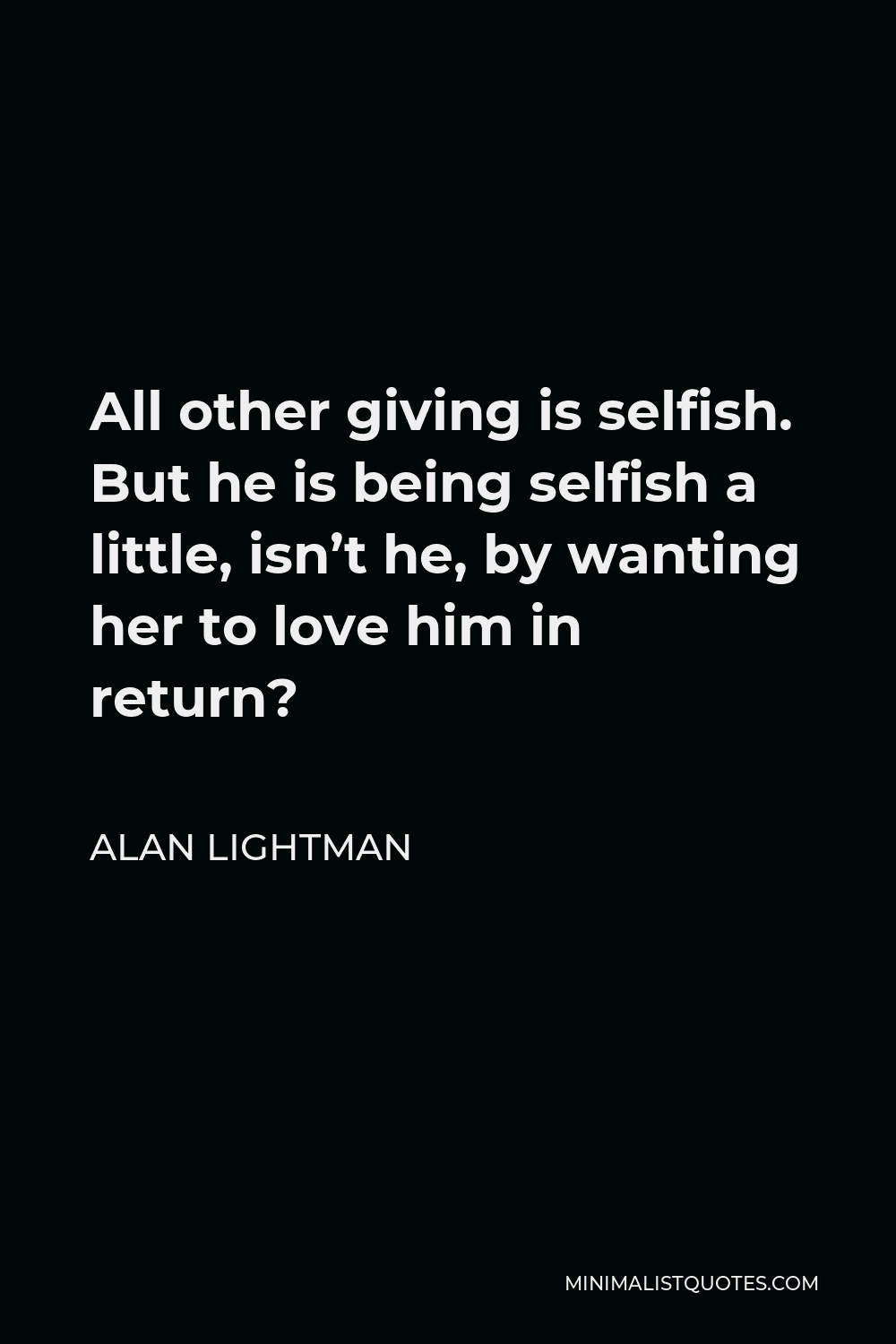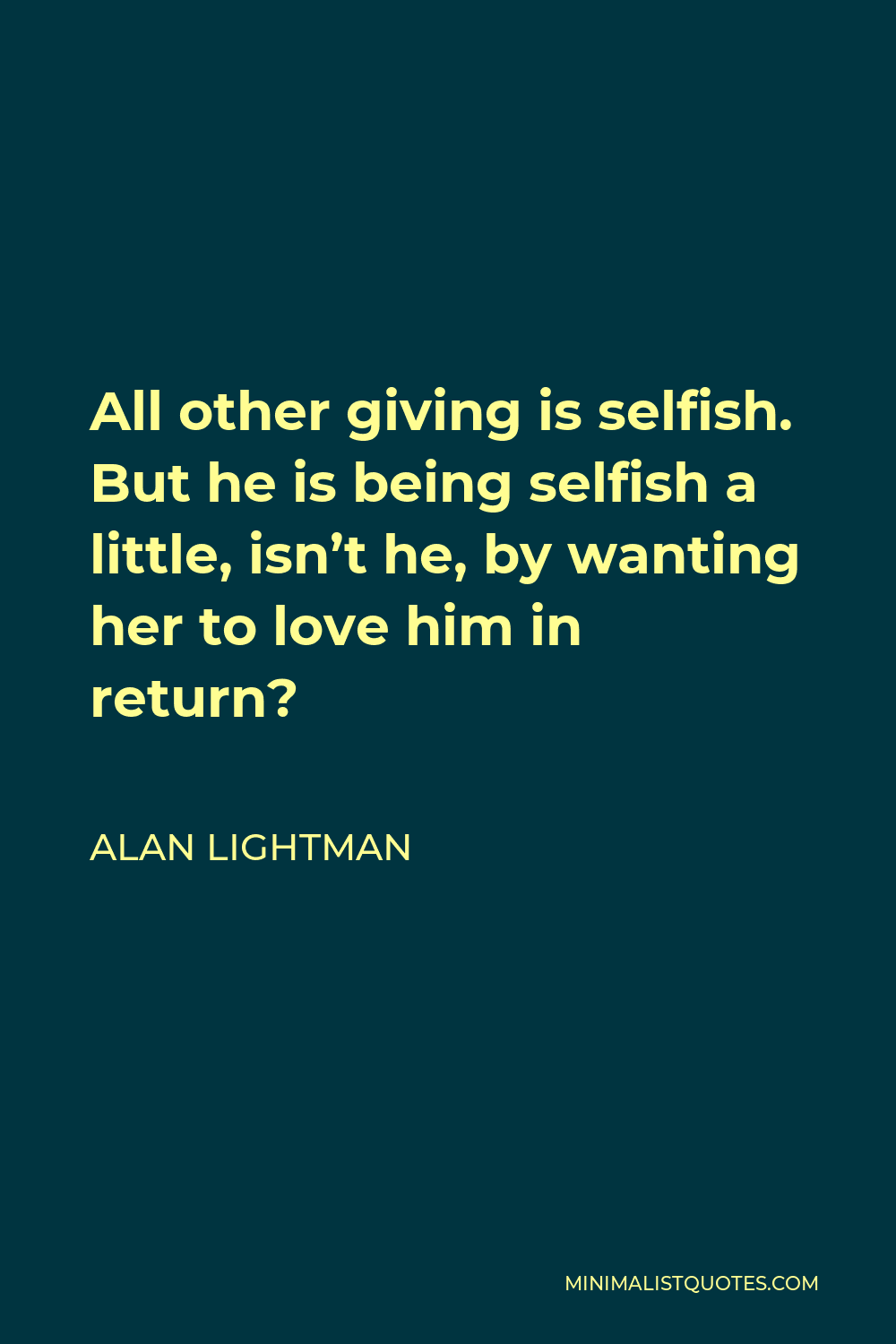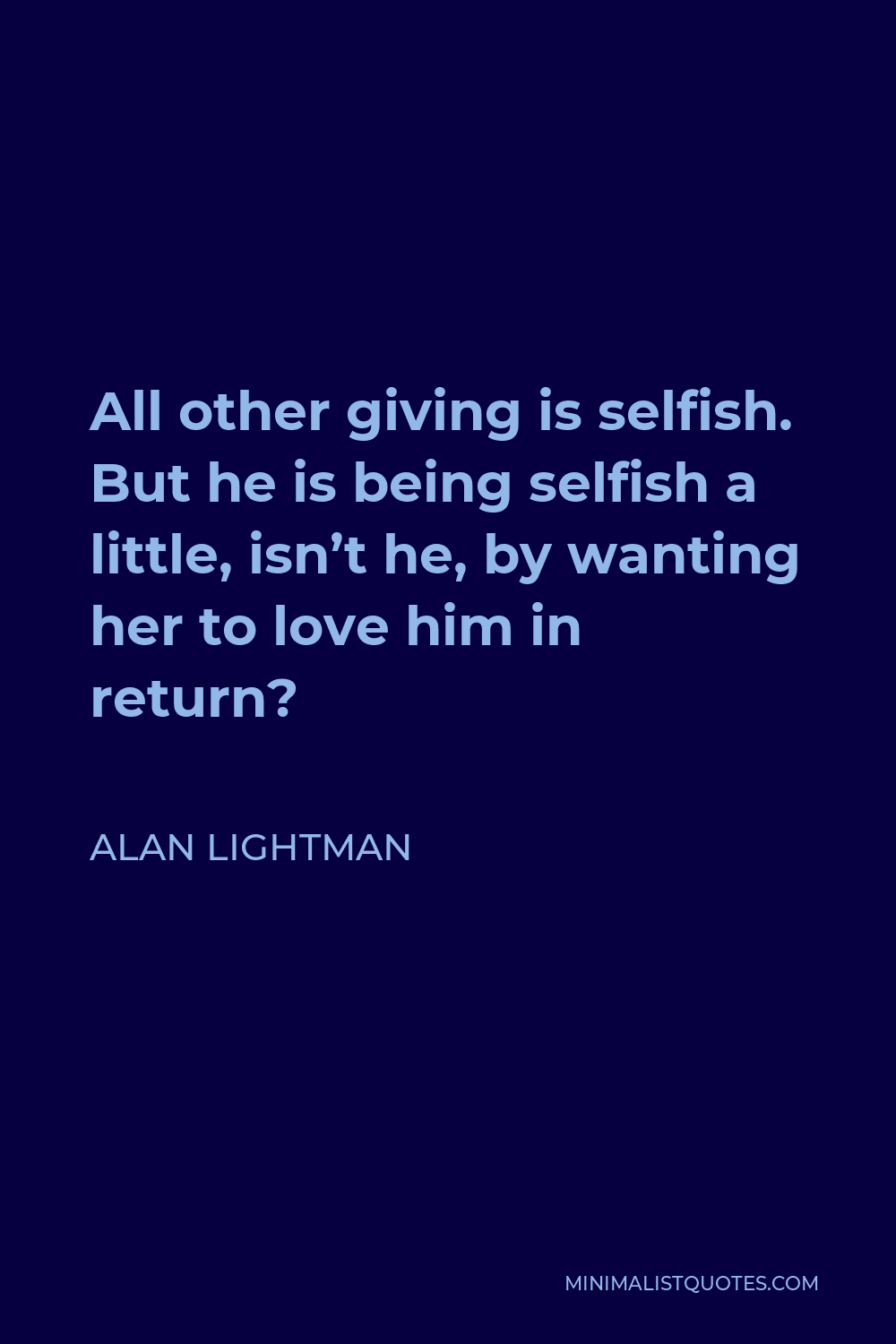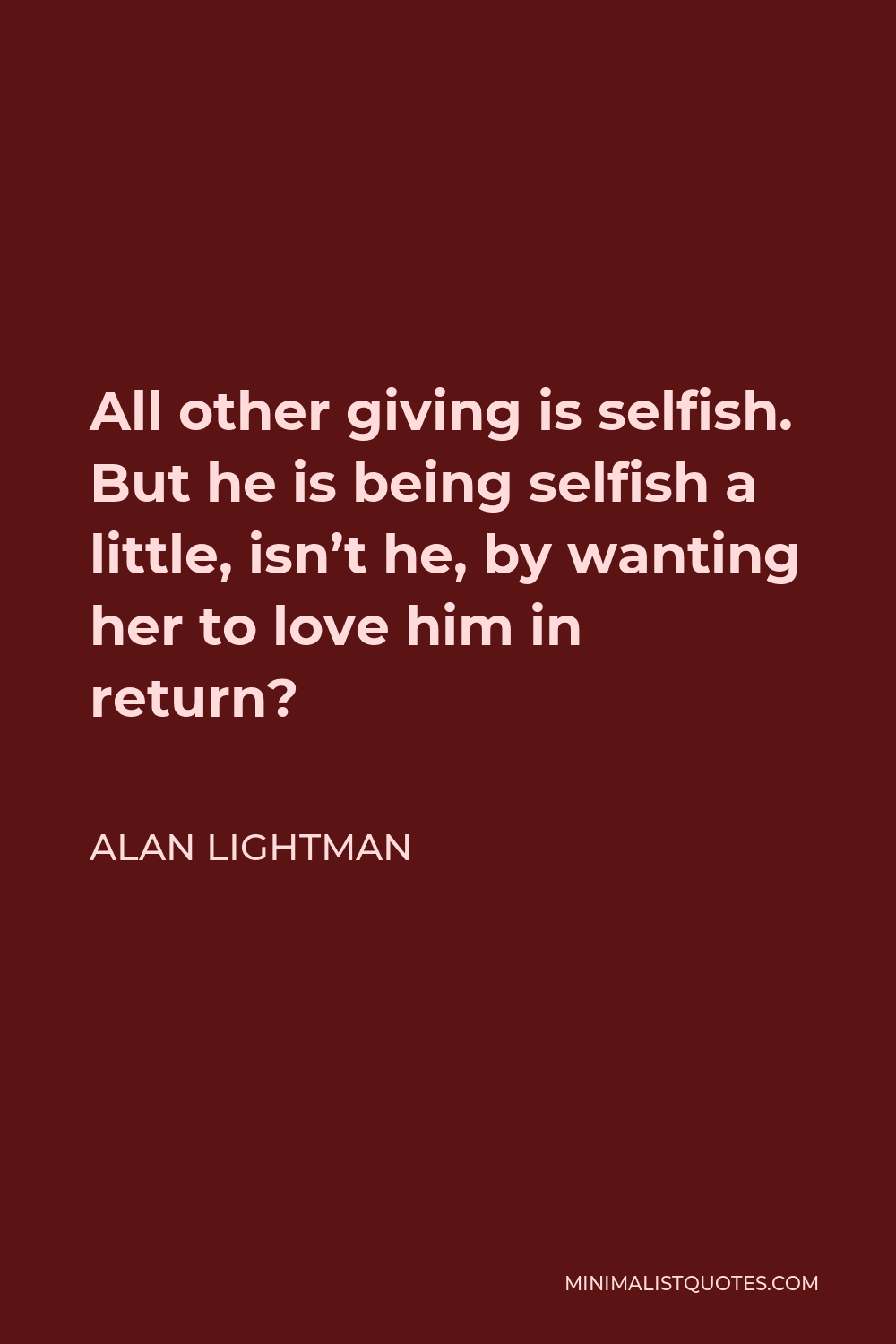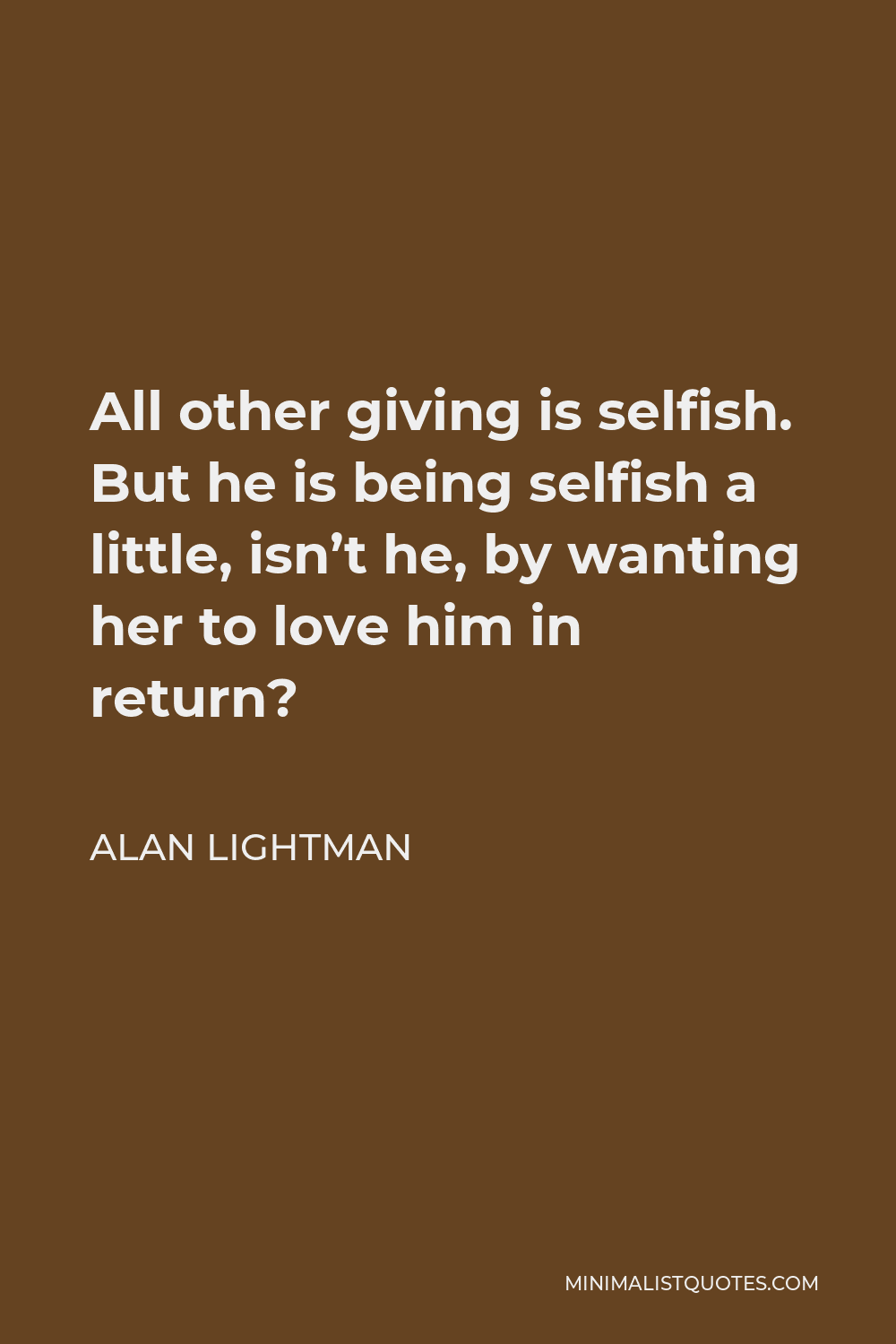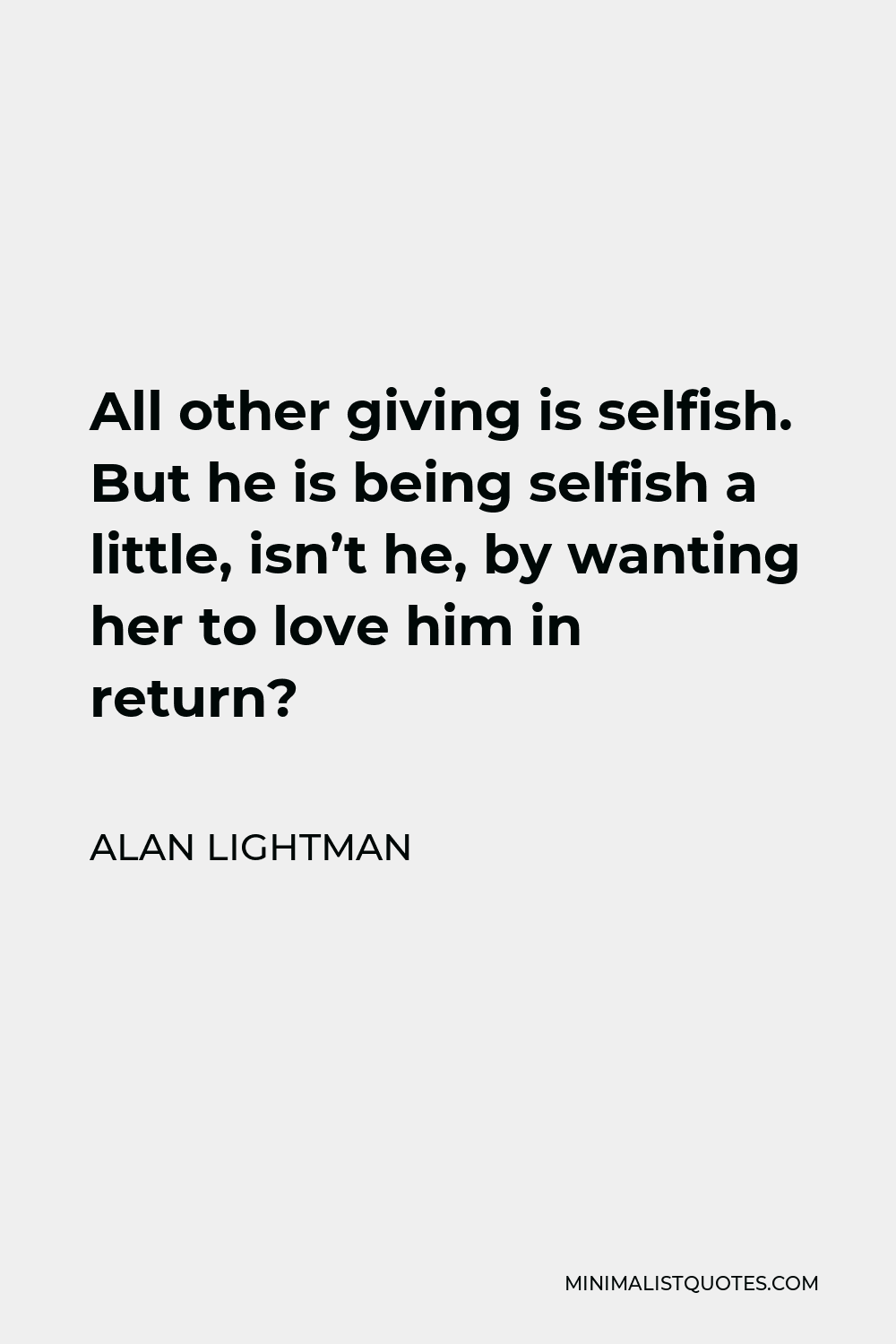I think what gets you through a small writing project, is just one burst of inspiration.
ALAN LIGHTMANAll other giving is selfish. But he is being selfish a little, isn’t he, by wanting her to love him in return?
More Alan Lightman Quotes
-





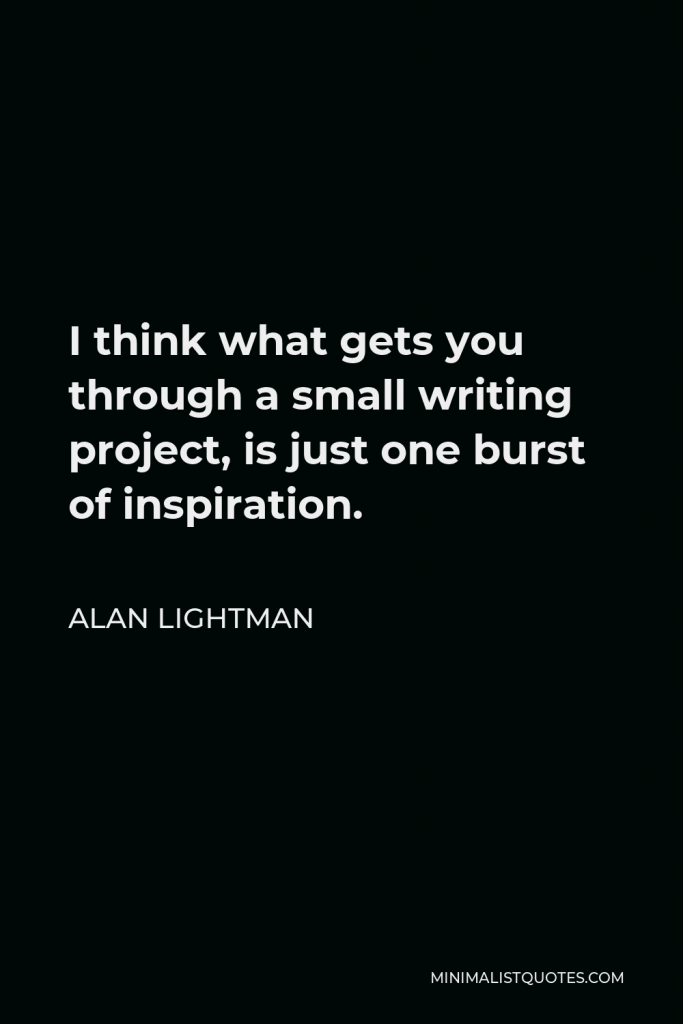

-





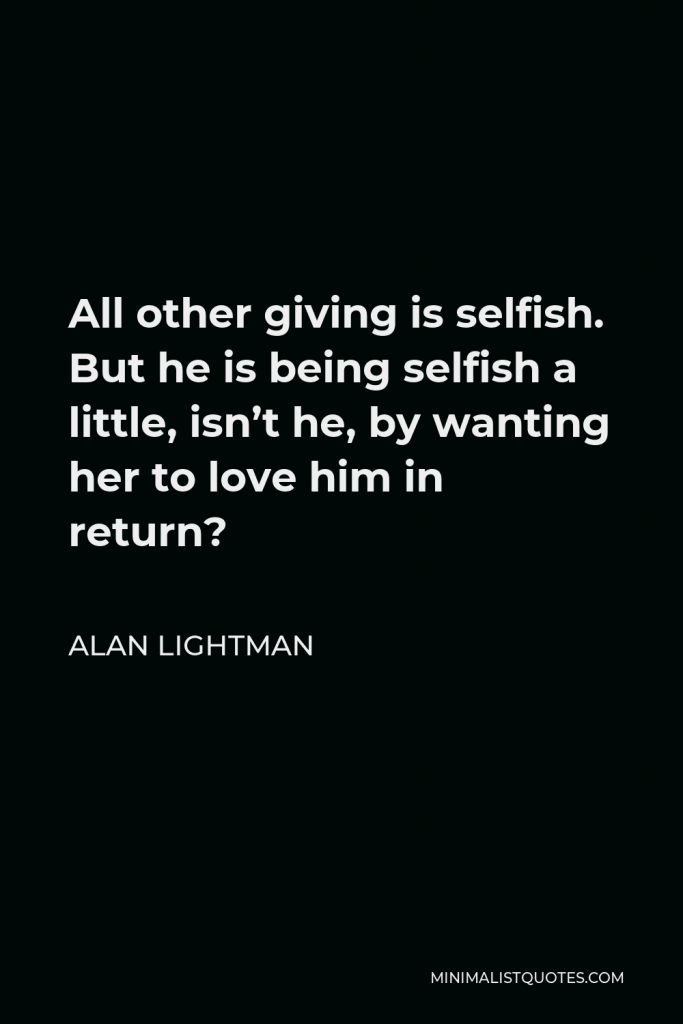

All other giving is selfish. But he is being selfish a little, isn’t he, by wanting her to love him in return?
ALAN LIGHTMAN -





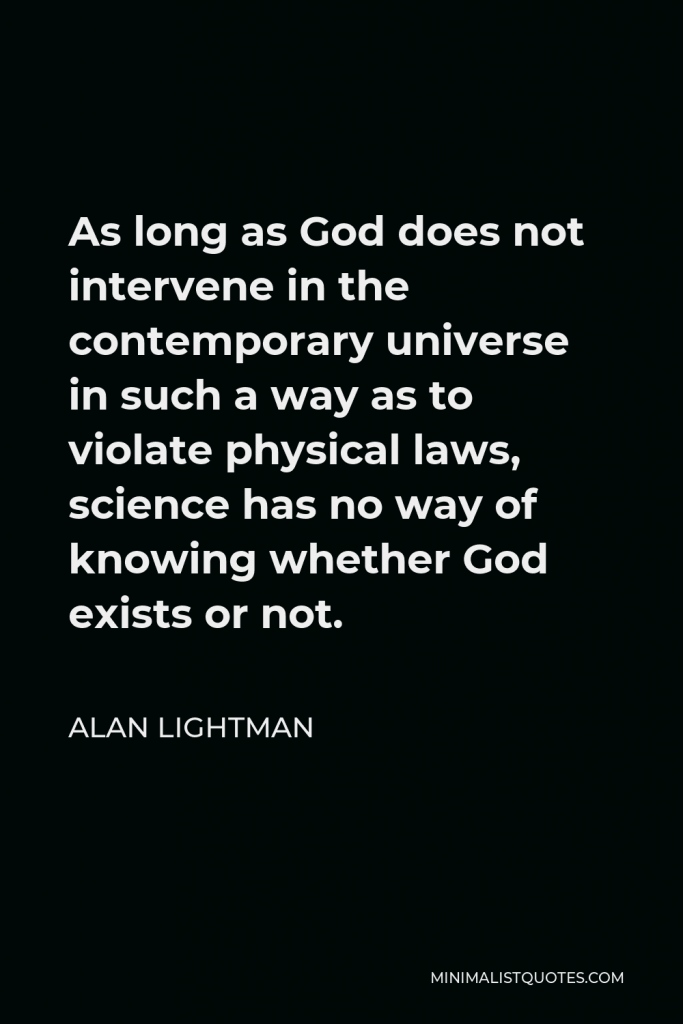

As long as God does not intervene in the contemporary universe in such a way as to violate physical laws, science has no way of knowing whether God exists or not.
ALAN LIGHTMAN -





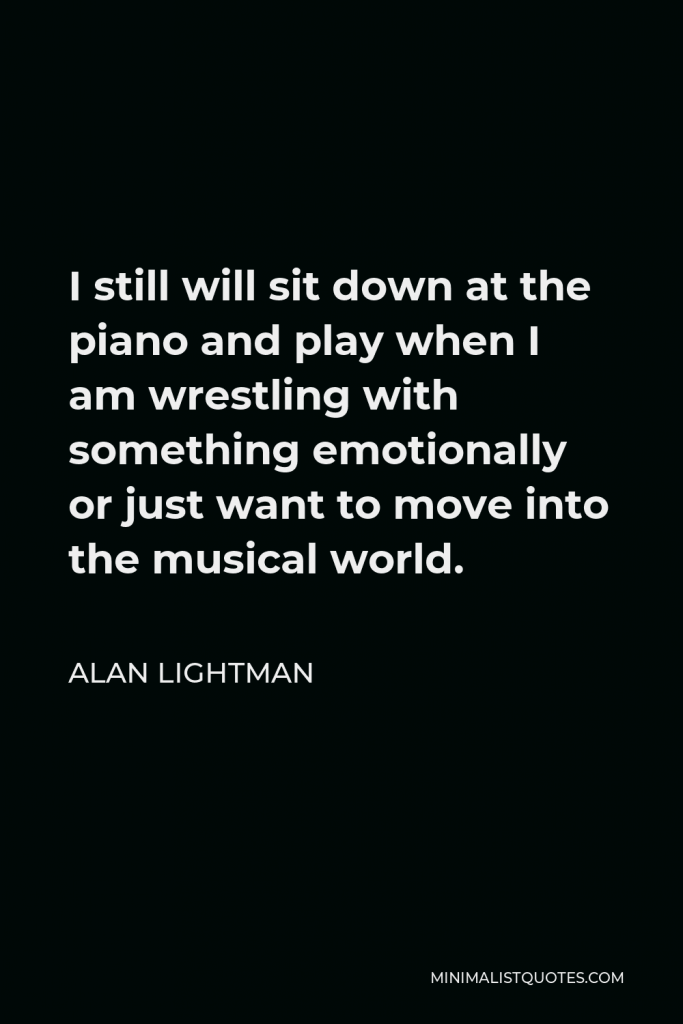

I still will sit down at the piano and play when I am wrestling with something emotionally or just want to move into the musical world.
ALAN LIGHTMAN -





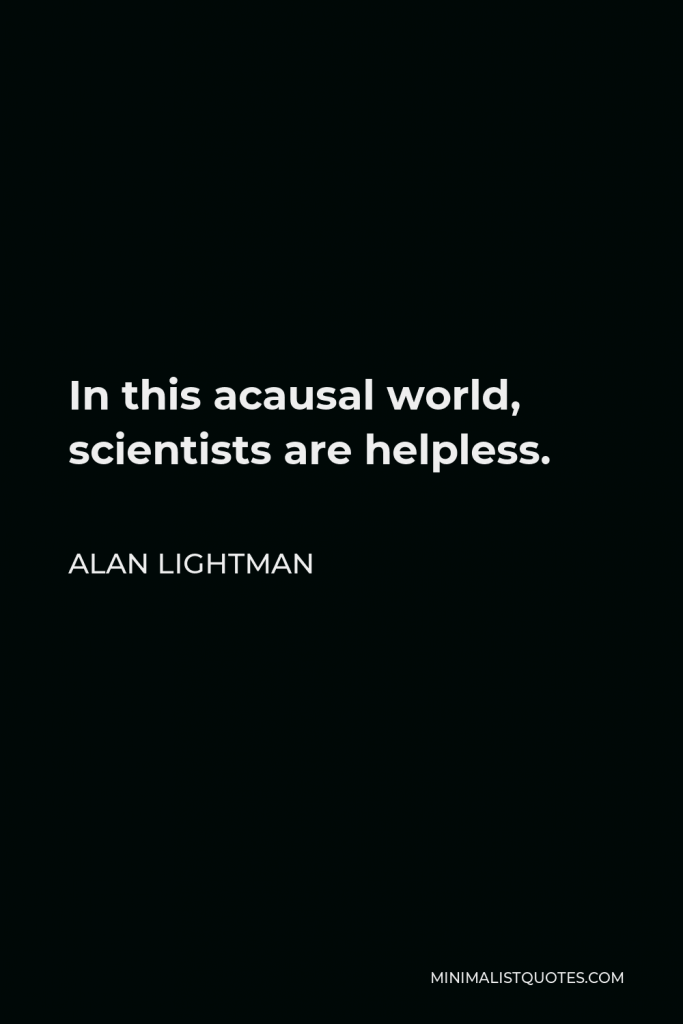

In this acausal world, scientists are helpless.
ALAN LIGHTMAN -





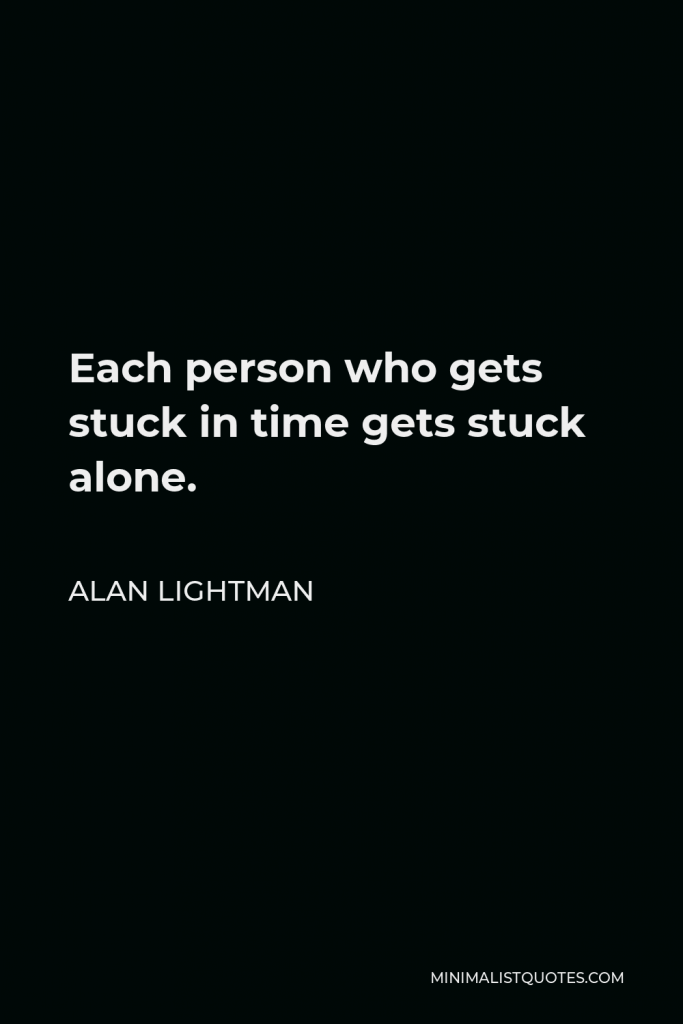

Each person who gets stuck in time gets stuck alone.
ALAN LIGHTMAN -





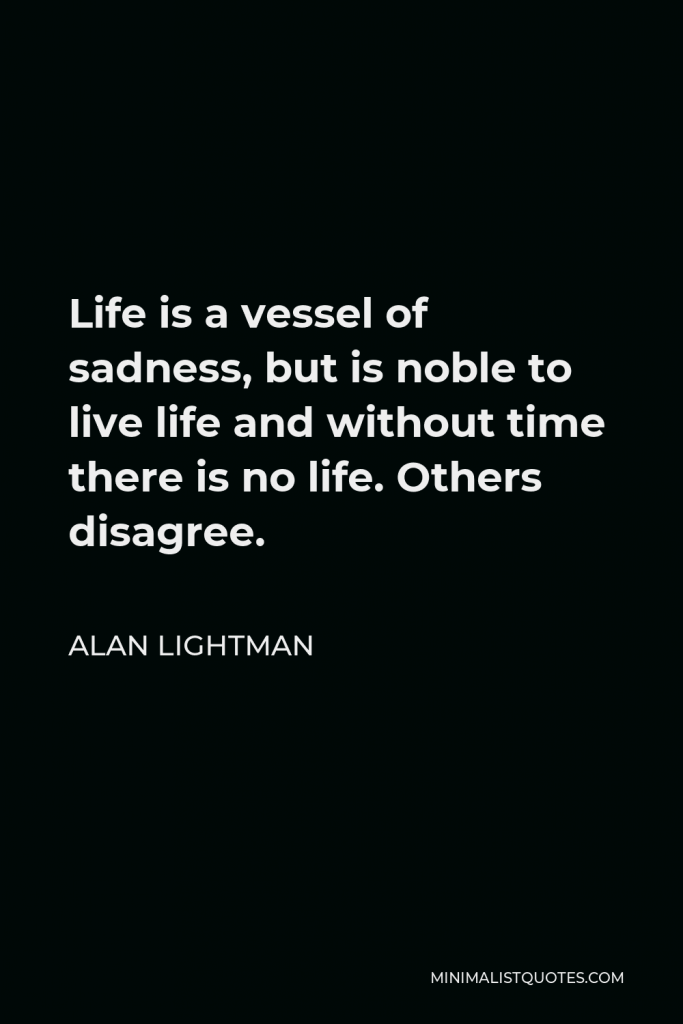

Life is a vessel of sadness, but is noble to live life and without time there is no life. Others disagree.
ALAN LIGHTMAN -





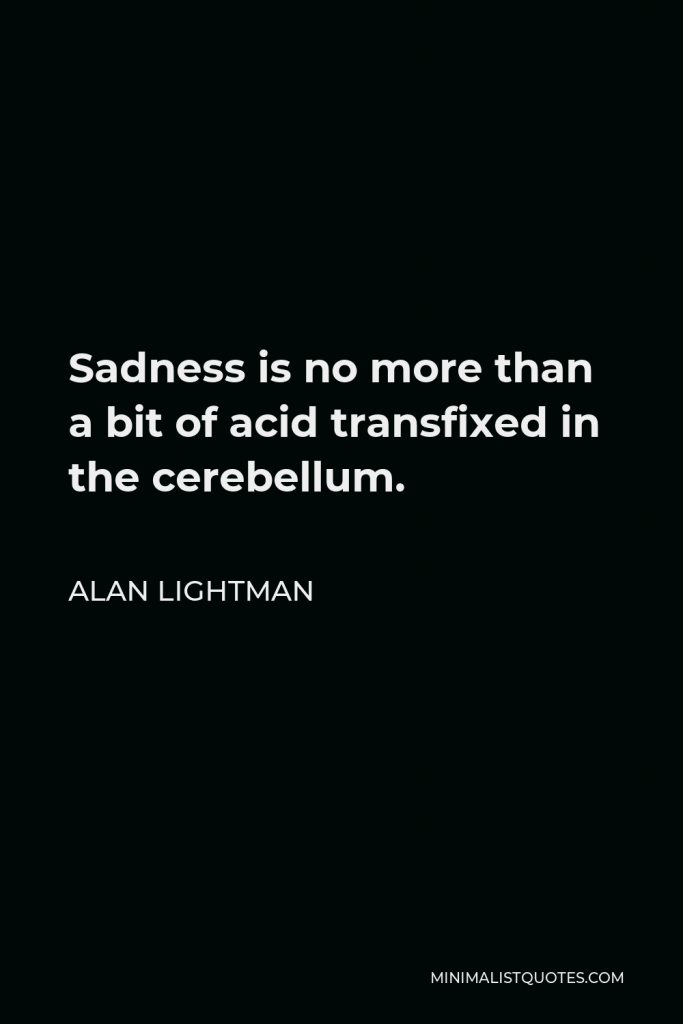

Sadness is no more than a bit of acid transfixed in the cerebellum.
ALAN LIGHTMAN -





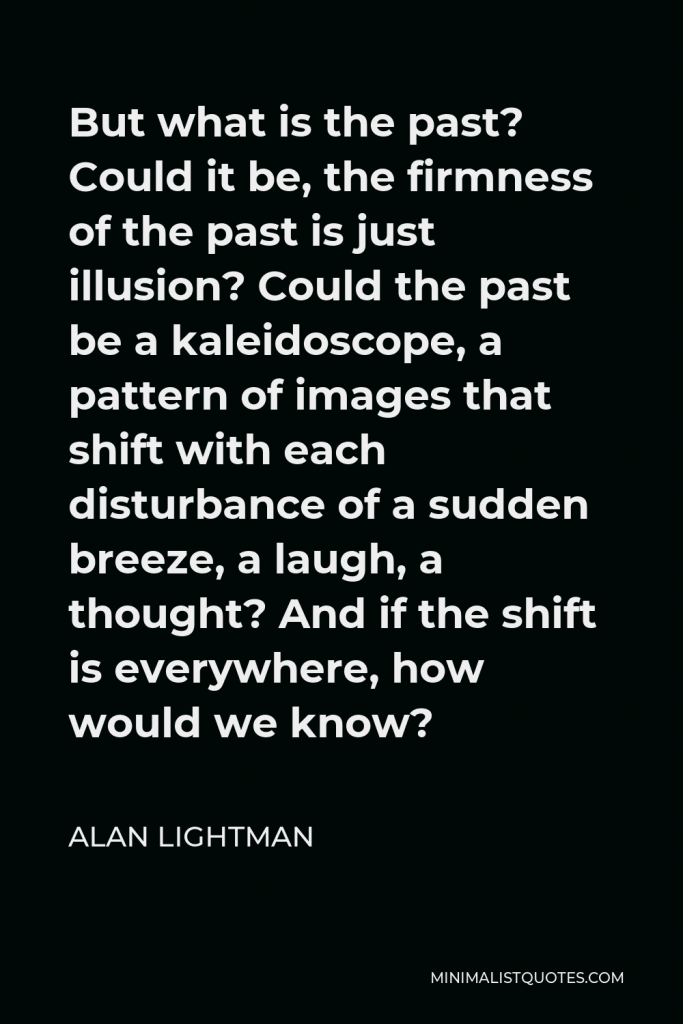

But what is the past? Could it be, the firmness of the past is just illusion? Could the past be a kaleidoscope, a pattern of images that shift with each disturbance of a sudden breeze, a laugh, a thought? And if the shift is everywhere, how would we know?
ALAN LIGHTMAN -





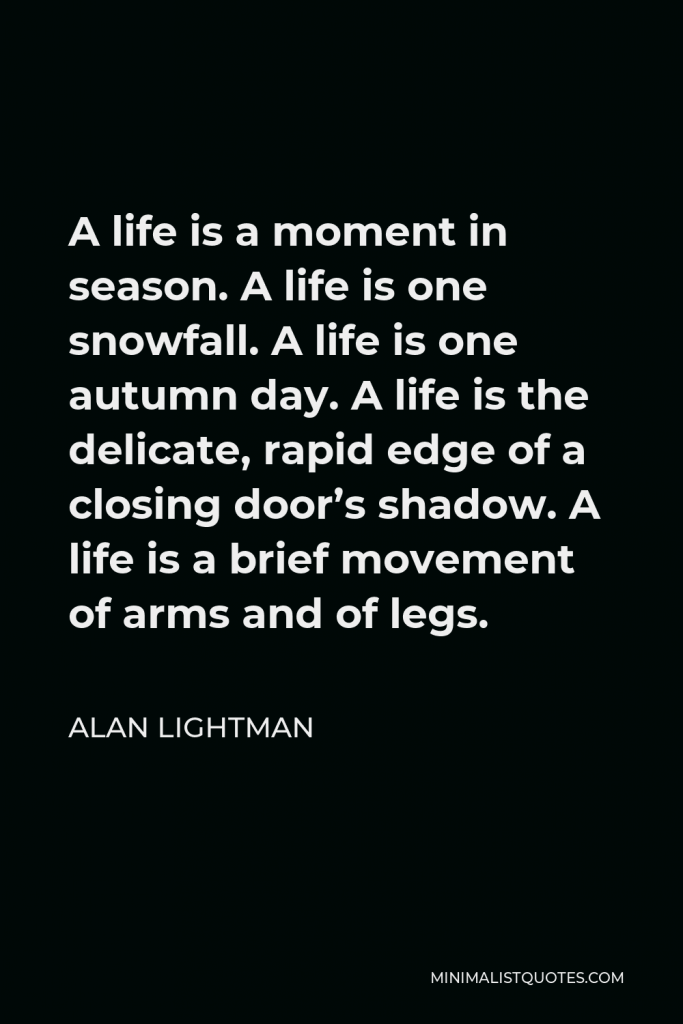

A life is a moment in season. A life is one snowfall. A life is one autumn day. A life is the delicate, rapid edge of a closing door’s shadow. A life is a brief movement of arms and of legs.
ALAN LIGHTMAN -





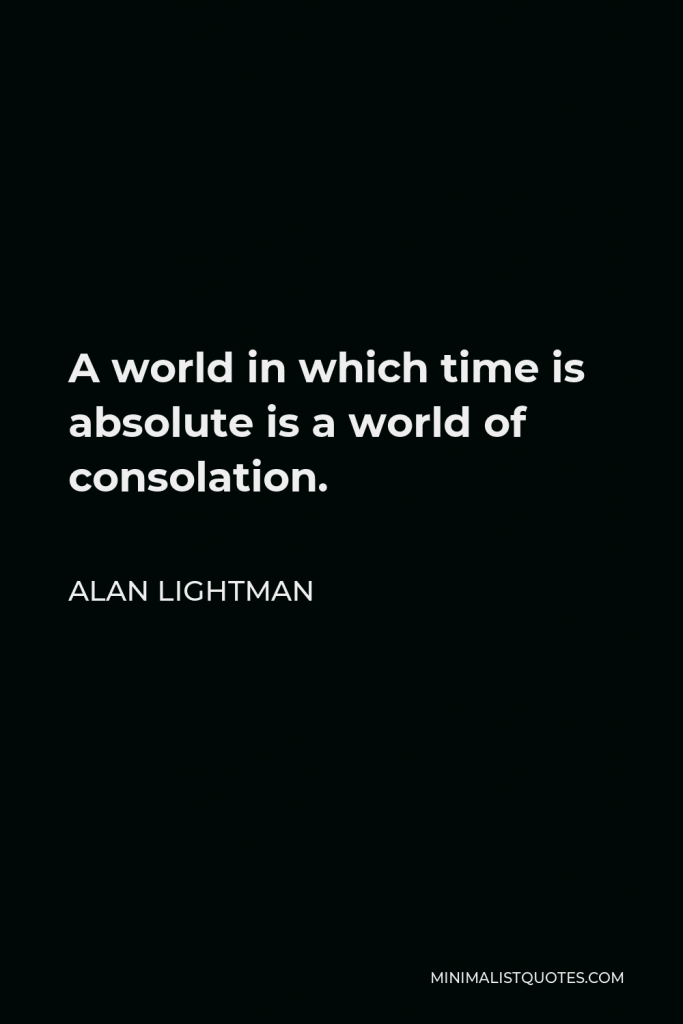

A world in which time is absolute is a world of consolation. For while the movements of people are unpredictable, the movement of time is predictable.
ALAN LIGHTMAN -





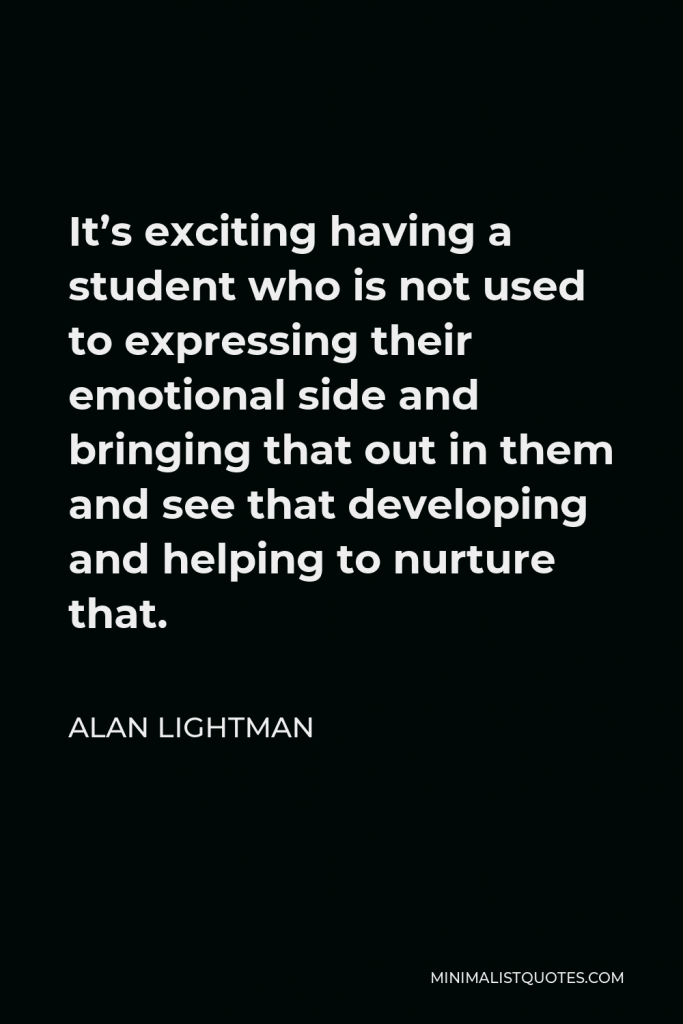

It’s exciting having a student who is not used to expressing their emotional side and bringing that out in them and see that developing and helping to nurture that.
ALAN LIGHTMAN -





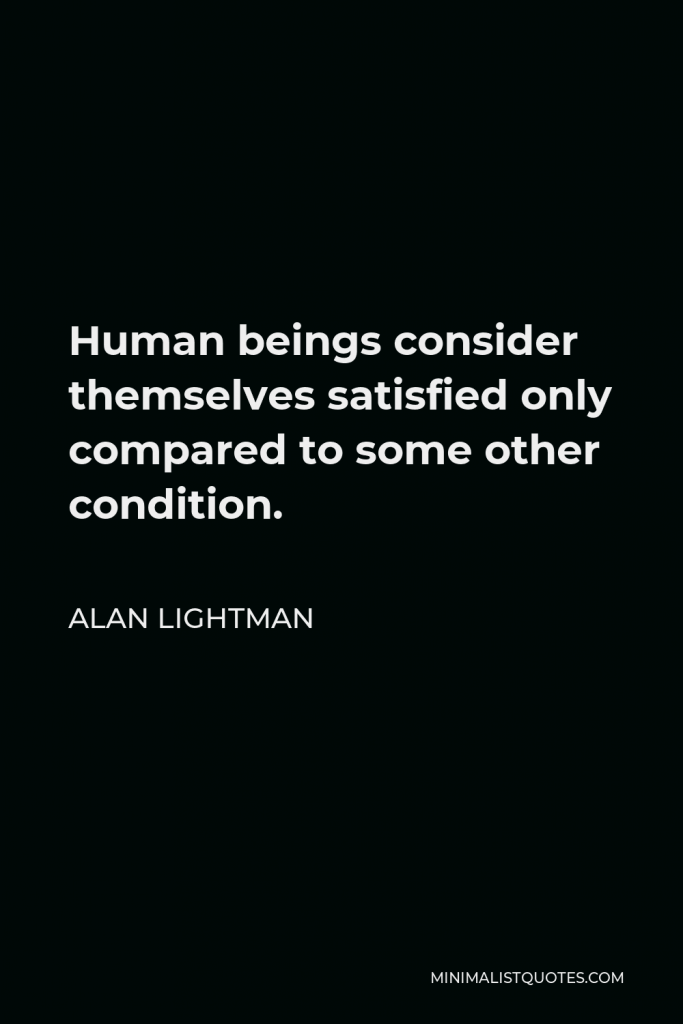

Human beings consider themselves satisfied only compared to some other condition.
ALAN LIGHTMAN -





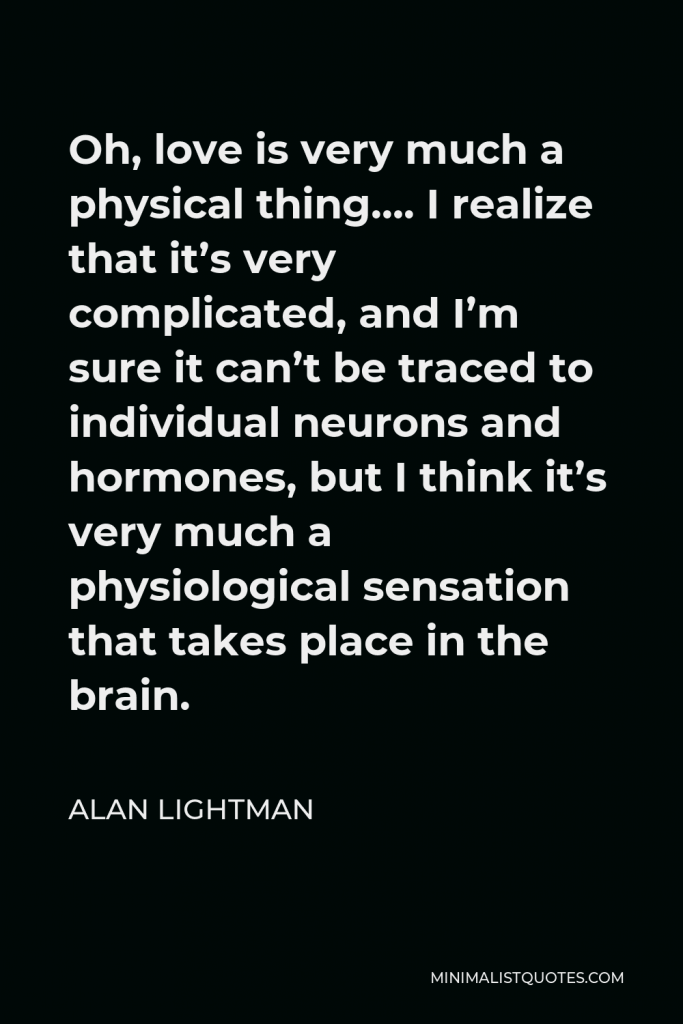

Oh, love is very much a physical thing…. I realize that it’s very complicated, and I’m sure it can’t be traced to individual neurons and hormones, but I think it’s very much a physiological sensation that takes place in the brain.
ALAN LIGHTMAN -





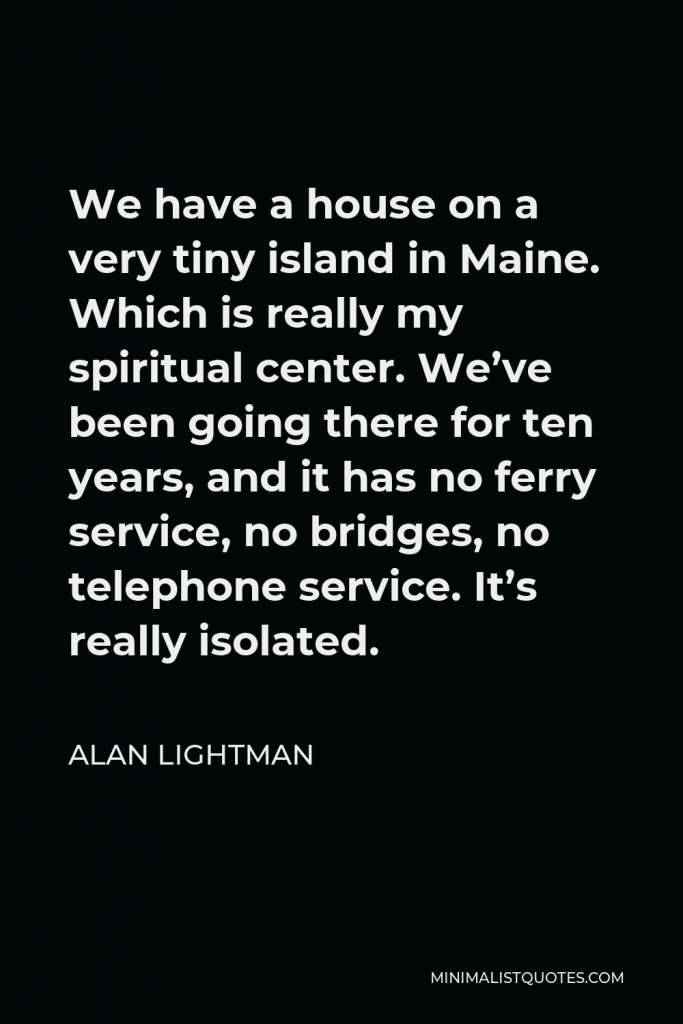

We have a house on a very tiny island in Maine. Which is really my spiritual center. We’ve been going there for ten years, and it has no ferry service, no bridges, no telephone service. It’s really isolated.
ALAN LIGHTMAN -





![Alan Lightman Quote - I’m humbled and enormously grateful to be connected to [Franz] Kafka in a any way. He is one of the writers I admire. I think he has been a big influence on me.](https://minimalistquotes.com/wp-content/uploads/2022/08/im-humbled-and-enormously-grateful-to-be-connected-683x1024.jpg)

I’m humbled and enormously grateful to be connected to [Franz] Kafka in a any way. He is one of the writers I admire. I think he has been a big influence on me.
ALAN LIGHTMAN
